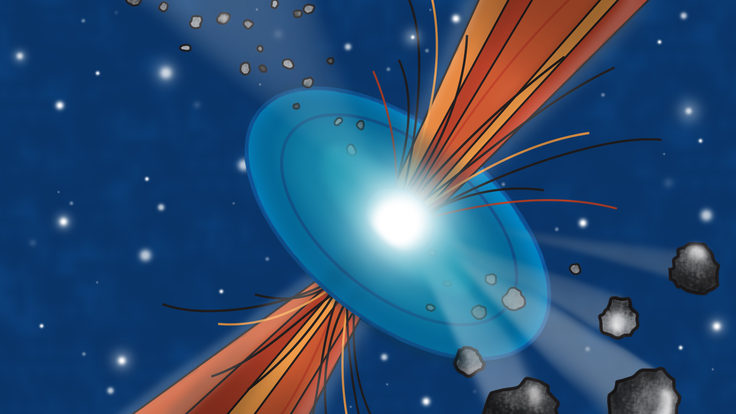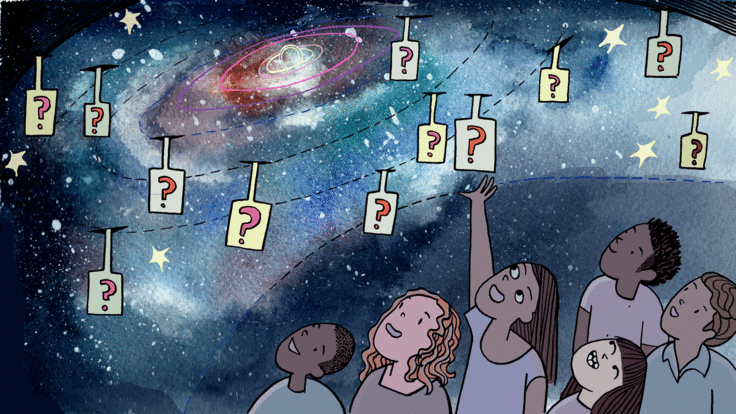Particle colliders do not keep normal working hours. They must be tended to 24 hours a day, seven days a week, holidays included.
Few people know this as well as the family of Robert “Obie” Oberholtzer, a talented engineer whom crews at Fermilab would call—any day, any time—when something went wrong with the accelerator complex for the laboratory’s particle collider, the Tevatron.
“Let me put it this way,” says his daughter Jennifer Oberholtzer, now 43. “They called him in to work even the day I gave birth to my daughter... He got to visit the hospital for a little while, at least.”
Oberholtzer worked at Fermilab for 41 years. He earned a reputation as someone who knew the machines inside and out (he could diagnose a problem sometimes by sound alone), as someone who kept his cool under pressure (he once responded to a control panel bursting into flames with a slow shake of the head and a calmly muttered swear), and as a particularly tough pitcher in the laboratory’s softball league.
Despite all of the times the Tevatron crew disrupted his sleep, made him miss his Ohio State football games and deprived him of dinner, Oberholtzer thought of them as a second family.
So when he began volunteering with an organization that provided Thanksgiving meals to people who might otherwise spend the holiday alone, he thought of the operators stuck on shift.
The Batavia, Ill., Veterans of Foreign Wars organization holds a free Thanksgiving dinner every year for anyone who wants to come. Volunteers deliver meals to people who cannot leave their homes and to people such as dispatchers at the police department who give up their holidays to provide a public service.
For three years, Oberholtzer came in to the laboratory on Thanksgiving. But these times, he wasn’t there to fix the accelerator. Instead, he delivered turkey, stuffing, vegetables, mashed potatoes and desserts from the VFW to the dozen people working in the Tevatron Main Control Room and in the guardhouses at the entrances to the laboratory.
“He cared not just about the lab; he cared about the guys there,” Jennifer says. “He cared about his whole family. As long as we had whatever we needed, Dad was good.”
In October 2009, at the age of 61, Oberholtzer fell seriously ill. Shortly before he died, his daughter spent time with him in the hospital, where she made a decision: As long as there were Oberholtzers in the area, the operators working at Fermilab on Thanksgiving day would never go without a special meal.
“The last few days of his life, he was not able to communicate,” she says. “I didn’t verbalize it to him, but I kind of made this promise inside.”
Just a few weeks after she buried her father, Jennifer took her daughter, Amanda, to the laboratory. “That first Thanksgiving was really, really hard,” she says. “But this was normal for Dad. Dad would’ve done it.”
This year on Thanksgiving, Jennifer arrived with boxed meals at around noon as usual. Many of the operators there were new. They had never met her father.
But Obie’s family understands what it’s like to miss an important event for the sake of looking out for Fermilab. And they know that the people who do it need someone to look out for them, too.








